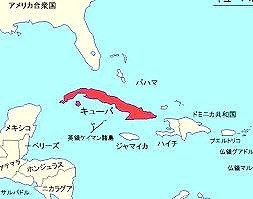 |
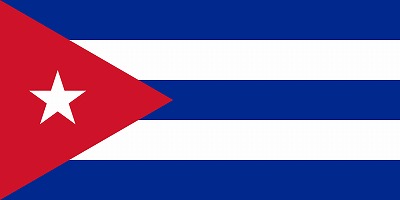 |
||
| I watched TV-program about Cuba the other day. |
|||
| ژ„‚حگو“ْپAƒLƒ…پ[ƒo‚ة‚آ‚¢‚ؤ‚جƒeƒŒƒr”ش‘g‚ًŒ©‚ـ‚µ‚½پB | |||
| There were lots of surprise but I'll talk you about only impressive things. | |||
| ‚½‚‚³‚ٌ‚ج‹ء‚«‚ھ‚ ‚è‚ـ‚µ‚½‚ھپA“ء‚ةˆَڈغ“I‚ب‚±‚ئ‚¾‚¯‚ًکb‚µ‚ـ‚·پB | |||
| You know , Cuba is socialism country. |
|||
| ‚²‘¶‚¶‚ج‚و‚¤‚ةپAƒLƒ…پ[ƒo‚حژذ‰ïژه‹`چ‘‚إ‚·پB | |||
| So all the Cuban people have the right to get some food once a every month. |
|||
| ‚»‚ê‚إپA‘S‚ؤ‚جچ‘–¯‚ة‚ح–ˆŒژ‚P‰ٌپAگH—؟•i‚ً‚à‚炤Œ —ک‚ھ‚ ‚è‚ـ‚·پB | |||
right Œ —ک |
|||
| For example, they get 2.5 kg rice , 500g black soybeans , 500g salt , 1.5kg white sugar, 500g black sugar, per one person. |
|||
| —ل‚¦‚خپA‚Pگl“–‚½‚èپA‚QپC‚T‡s‚ج•ؤپA‚T‚O‚O‚‡‚جچ•“¤پA‚T‚O‚O‚‡‚ج‰–پA ‚PپC‚T‡s‚ج”’چ»“œپA‚T‚O‚O‚‡‚جچ•چ»“œ‚ً‚à‚炦‚ـ‚·پB |
|||
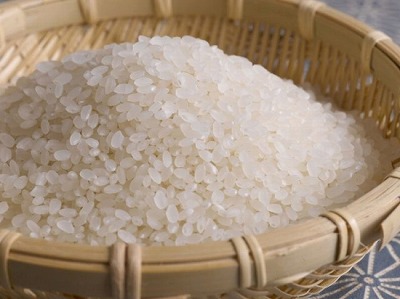 |
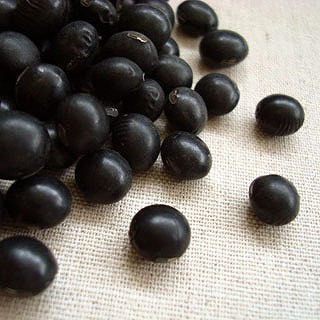 |
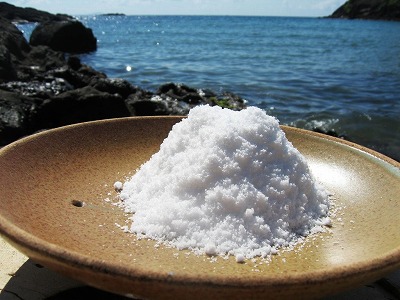 |
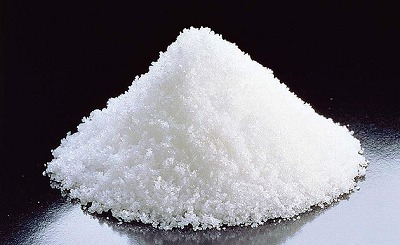 |
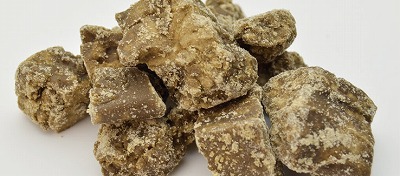 |
|||
| In four people family case, 10kg rice, 2kg salt, 8kg sugar. | |||
| ‚Sگl‰ئ‘°‚جڈêچ‡‚ب‚çپA‚P‚O‡s‚ج•ؤپA‚Q‡s‚ج‰–پA‚W‡s‚جچ»“œ‚ئ‚¢‚¤‚±‚ئ‚ة‚ب‚è‚ـ‚·پB | |||
| Don't you think that salt and sugar is too much ? |
|||
| ‰–‚ئچ»“œ‚ھ‘½‚·‚¬‚é‚ئژv‚¢‚ـ‚¹‚ٌ‚©پH | |||
| But most Cuban said, "I need more sugar." | |||
| ‚إ‚à‚ظ‚ئ‚ٌ‚ا‚جƒLƒ…پ[ƒoگl‚حپuچ»“œ‚ھ‚à‚ء‚ئ•K—v‚إ‚·پBپv‚ئŒ¾‚ء‚ؤ‚¢‚ـ‚µ‚½پB | |||
| It's famous that Cuban use lots of sugar in sweets, coffee, liquor, dishes and even fruit. |
|||
| ƒLƒ…پ[ƒoگl‚ھ‚¨‰ظژqپAƒRپ[ƒqپ[پA‚¨ژًپA—؟—پA‚»‚µ‚ؤ‰ت•¨‚ة‚³‚¦‘ه—ت‚جچ»“œ‚ًژg‚¤‚ج‚ح—L–¼‚إ‚·پB | |||
| "Trondekoko"is traditional Cuban coconuts sweets. | |||
| ƒgƒچƒ“ƒfƒRƒR‚حƒLƒ…پ[ƒo‚ج“`““I‚بƒRƒRƒiƒbƒc‰ظژq‚إ‚·پB | |||
| It uses 1.5kg black sugar and 1kg white sugar. | |||
| ‚»‚ج‚¨‰ظژq‚ح‚PپC‚T‡s‚جچ•چ»“œ‚ئ‚P‡s‚ج”’چ»“œ‚ًژg‚¢‚ـ‚·پB | |||
| By the way, Cuba is famous for its sugar. | |||
| ‚ئ‚±‚ë‚إƒLƒ…پ[ƒo‚حچ»“œ‚إ—L–¼‚إ‚·‚و‚ثپB | |||
famous for its پ`پ@پ@پ`‚إ—L–¼‚إ‚· |
|||
| Cuba is ranked 11th in the world for sugar production. | |||
| ƒLƒ…پ[ƒo‚حچ»“œ‚جگ¶ژY‚إگ¢ٹE‘و‚P‚Pˆت‚إ‚·پB | |||
| But Cuba is ranked 1st in the world for sugar consumption. | |||
| ‚µ‚©‚µپAƒLƒ…پ[ƒo‚حچ»“œ‚جڈء”ï‚إگ¢ٹE‘و‚Pˆت‚ب‚ٌ‚إ‚·پB | |||
| There's a interesting custom in Cuba. |
|||
| ƒLƒ…پ[ƒo‚ة‚ح–ت”’‚¢ڈKٹµ‚ھ‚ ‚è‚ـ‚·پB | |||
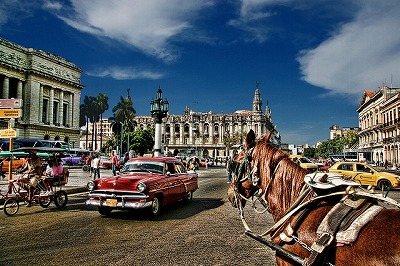 |
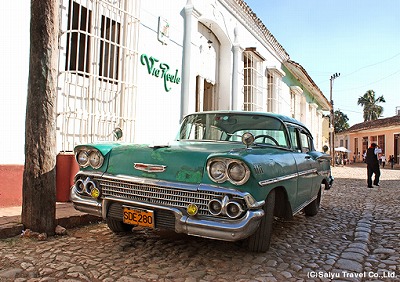 |
||
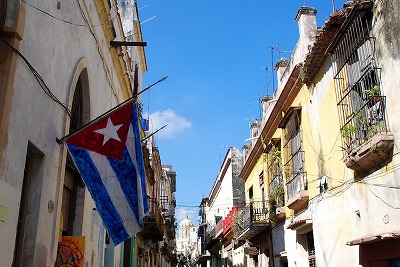 |
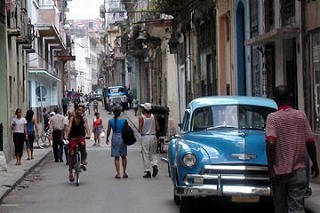 |
||
| In town, a bag is hanging from the third or fourth floor of the apartment house. | |||
| ’¬‚إپA‘ـ‚ھƒAƒpپ[ƒg‚ج‚RٹK‚©‚SٹK‚©‚ç‚ش‚ç‰؛‚ھ‚ء‚ؤ‚¢‚ـ‚·پB | |||
| The bag has a memo and some money. | |||
| ‚»‚ج‘ـ‚ة‚حƒپƒ‚‚ئ‚¨‹à‚ھ“ü‚ء‚ؤ‚¢‚ـ‚·پB | |||
| The memo says, "Could you buy a bread?" | |||
| ‚»‚جƒپƒ‚‚ة‚حپAپuƒpƒ“‚ً”ƒ‚ء‚ؤ‚«‚ؤ‰؛‚³‚¢پBپv‚ئڈ‘‚¢‚ؤ‚ ‚è‚ـ‚·پB | |||
| So that means "errand". | |||
| ‚آ‚ـ‚èپu‚¨‚آ‚©‚¢پv‚ئ‚¢‚¤‚±‚ئ‚إ‚·پB | |||
 |
|||
| I'm sure that elderly people ask a errand then. | |||
| ژ„‚ح‚»‚جژپA‚«‚ء‚ئچ‚—î‚جگl‚½‚؟‚ھ‚¨‚آ‚©‚¢‚ً—ٹ‚ق‚ٌ‚¾‚ئژv‚¢‚ـ‚µ‚½پB | |||
| But they are not always elderly people. | |||
| ‚µ‚©‚µ”ق‚ç‚ح•K‚¸‚µ‚àپA‚¨”Nٹٌ‚è‚ئ‚¢‚¤‚±‚ئ‚ح‚ب‚¢‚ٌ‚إ‚·پB | |||
not alwaysپ`پ@پ@پ@پ@•K‚¸‚µ‚àپ`‚إ‚ب‚¢ |
|||
| Because they don't want bother going down stairs . | |||
| ٹK’i‚ًچ~‚è‚é‚ئ‚¢‚¤–ت“|‚ب‚±‚ئ‚ح‚µ‚½‚‚ب‚¢‚©‚ç‚ب‚ج‚إ‚·پB | |||
| I think Cuban people live an easylife. | |||
| ƒLƒ…پ[ƒo‚جگlپX‚حپA‚ج‚ٌ‚«‚ة•é‚炵‚ؤ‚¢‚é‚ئژv‚¢‚ـ‚·پB | |||
 |
|||
| ‚Q‚O‚P‚S”N‚VŒژپH“ْپi–طپj | ƒgƒbƒvƒyپ[ƒW‚ض–ك‚é | ||